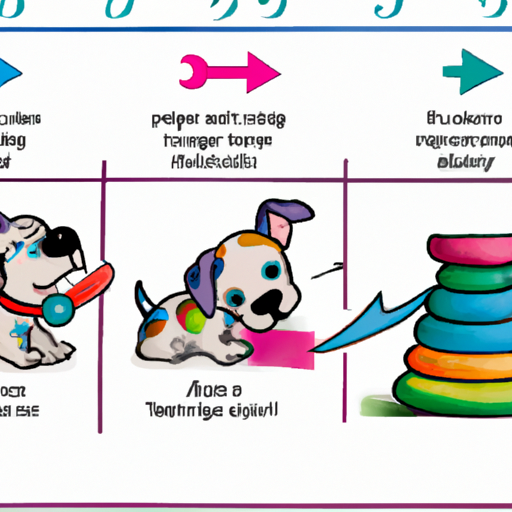As a dog parent, you’ve likely experienced the joys of puppyhood. From their first wagging tail to that adorable puppy breath, it’s a time of discovery and bonding. But, as with human babies, puppies go through a teething phase that can be a challenging time for both you and your furry friend. Understanding the teething process and knowing when dogs start teething can help you navigate this stage with ease, keeping your puppy comfortable and your belongings intact.
Table of Contents
- Puppy Teething Timeline
- Signs Your Puppy is Teething
- How to Help Your Teething Puppy
- Common Teething Problems in Dogs
- Frequently Asked Questions
Key Takeaways
- Puppies begin teething around three weeks of age.
- The teething process can cause discomfort and behavioral changes in your puppy.
- Provide safe chew toys and monitor your puppy’s dental health to help them through the teething phase.
- Consult a vet if your puppy shows signs of complications, such as retained baby teeth.
Puppy Teething Timeline
Teething is a natural process that all puppies go through. The precise timeline can vary slightly, but generally, puppies start teething when they are around three weeks old. This is when the deciduous or baby teeth begin to erupt. By six to eight weeks, most puppies will have a full set of 28 baby teeth.
At around 12 weeks, these baby teeth start to fall out, making way for the adult teeth. By the time your puppy is six to seven months old, they should have a full set of 42 adult teeth. This comprehensive dog teething timeline can provide more details.
Signs Your Puppy is Teething
Just like human babies, puppies can show signs of discomfort during the teething process. You may notice that your puppy is chewing more than usual. This is because the pressure from chewing can alleviate the discomfort they are feeling. Excessive drooling, changes in eating habits, and a slight increase in aggression may also indicate that your puppy is teething.
You might also find tiny teeth around your home, but don’t be alarmed. It’s normal for baby teeth to fall out to make room for adult teeth. Keep an eye on your puppy’s mouth and consult your vet if you notice any bleeding or inflamed gums.
How to Help Your Teething Puppy
During the teething phase, your puppy will have an increased urge to chew. This can be destructive if not properly managed. Providing your puppy with safe and suitable chew toys can help protect your belongings and soothe your puppy’s gums.
You can also consider using puppy teething gels or giving your puppy cold chews or frozen carrots to numb the discomfort. This guide can help you identify the best ways to help your teething puppy.
Remember to monitor your puppy’s dental health. Regular check-ups with your vet are essential to ensure that your puppy’s teeth are growing correctly and to identify any potential dental problems early.
Common Teething Problems in Dogs
While teething is a natural process, complications can arise. One common issue is retained baby teeth. This occurs when the baby tooth doesn’t fall out, blocking the path for the adult tooth. If you notice any baby teeth remaining after your puppy has finished teething, consult your vet. They may need to be removed to prevent further dental issues.
Frequently Asked Questions
-
When do dogs start teething?
Puppies typically start teething around three weeks old. -
What are signs of a puppy teething?
Increased chewing, excessive drooling, changes in eating habits, and finding baby teeth around your home are common signs of a teething puppy. -
How can I help my teething puppy?
Providing safe chew toys, using teething gels, and offering cold chews can help soothe a teething puppy. Regular vet check-ups are also essential.
Understanding the teething process can help you better care for your puppy during this essential stage of their life. For more insights on puppy care, check out these articles on puppy nutrition, puppy training, and common puppy problems.
Remember, every puppy is unique, and understanding your puppy’s needs and behaviors is key to a happy and healthy life together.



